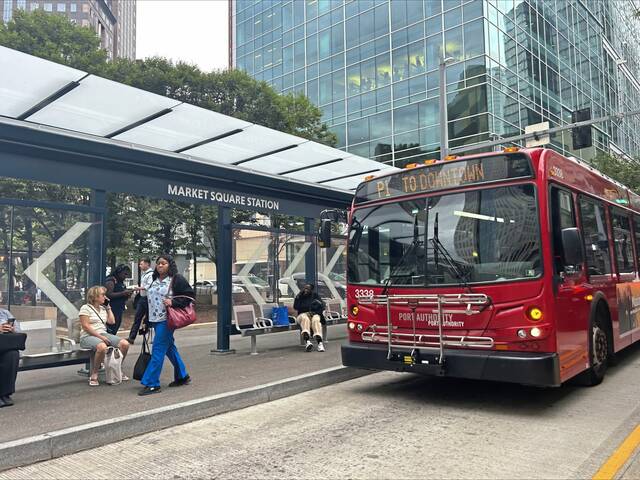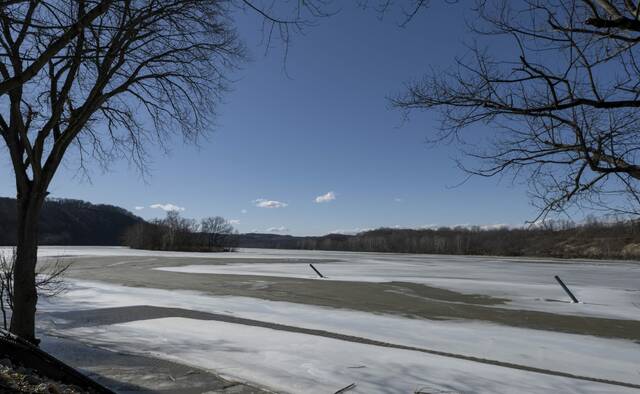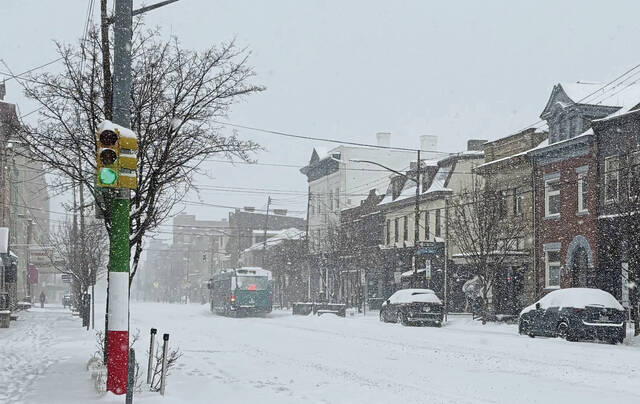Pittsburgh Regional Transit wants to use $107 million set aside for critical maintenance and repairs to stave off service cuts and fare hikes.
The agency on Thursday asked Gov. Josh Shapiro and the Pennsylvania Department of Transportation if it can pull from a pot of money dedicated to transit infrastructure work across the state.
State lawmakers, embroiled in a debate on how to best fund public transit, play no role in deciding whether to shift the funds.
“This is not an ideal solution, but it is our best option to protect our riders by avoiding catastrophic service cuts and fare increases,” Pittsburgh Regional Transit CEO Katharine Kelleman said in a statement.
If approved, Pittsburgh Regional Transit says it could plug a projected $100 million deficit in its 2025-26 budget, averting a 35% reduction in service and 9% hike in fares that could start as early as February. The remaining funds would go toward the 2026-27 budget.
Pittsburgh Regional Transit has not said which projects would be impacted, but any work that is “safety critical” would go ahead as planned, according to spokesman Adam Brandolph.
Southeastern Pennsylvania Transportation Authority, covering the Philadelphia area, got permission on Monday to use up to $394 million from the $2.4 billion capital improvements fund to assist with operating costs the next two years.
The agency, which faced a more than $200 million deficit heading into this fiscal year, is under a court order to reverse the austerity measures implemented last month because of their disproportionate impact on poor and minority communities. It plans to do so by next week.
Transit cuts in and around Pittsburgh could have also seen legal challenges, Brandolph noted.
“It was an unfunded order, and if this option was not available to SEPTA and PRT, I don’t know what the alternative would have been,” Brandolph said.
As part of the deal, the Southeastern Pennsylvania Transportation Authority must file a report with the state every 120 days on how it’s improving system efficiency.
Transit agencies have sought additional long-term funding in talks for a state budget already two months overdue. Democrats, who control the House, have supported them.
But the Republican-controlled Senate has tried to force transit agencies to draw from the capital fund, called the Public Transportation Trust Fund, to make ends meet.
The Senate budget proposal also calls for fare hikes every two years as well as dedicating some of the trust fund money to roads and bridges.
“SEPTA and PRT’s support for our approach to using PTTF dollars is a significant step to help end the chaos felt by riders over the last several weeks,” State Senate Majority Leader Joe Pittman, R-Indiana, said in a statement.
State Senate Minority Leader Jay Costa, D-Forest Hills, called on Republicans to offer a sustainable funding source for public transit.
“Once again, the inaction of the Senate Republicans has forced the second largest transit system in Pennsylvania to reallocate funding from their capital fund to their operating fund,” Costa said in a statement. “We need the state to do its part to provide funding to keep these services available.”
Shapiro’s office did not immediately return a request for comment.
It took the governor four days to give the green light to SEPTA. Brandolph said he expects a similar timeline for Pittsburgh Regional Transit.
From there, the agency would hold a committee meeting Sept. 18 to amend its budget, a change that would go before the full board on Sept. 26.
“Likely by our committee meetings, I would anticipate that we would have a list of which capital projects we are unable to pursue, or at least those that we are able to pursue,” Brandolph said.
He said projects with a greater proportion of federal funding, as opposed to state dollars, will be more likely to continue.
The state’s numerous smaller transit agencies are not permitted to access the capital fund in a similar way as Pittsburgh Regional Transit and the Southeastern Pennsylvania Transportation Authority, per Brandolph.
Westmoreland County Transit Authority officials say they have enough money to maintain routes and fares through the end of next summer.








